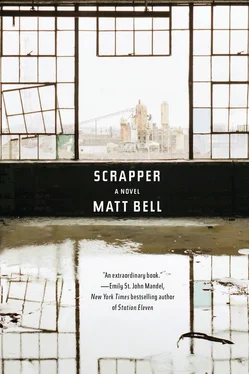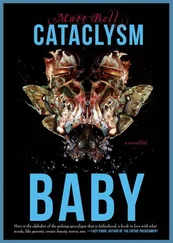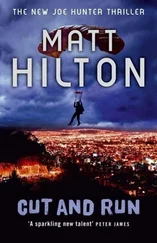His kitchen table only had two chairs but the women said they didn’t mind standing. He opened their packages of paper plates, plastic silverware, fed their food back to them: rigatoni for days, a deli platter feeding a dozen. The Christian women said saving Daniel was his penance for the scrap he’d stolen. He listened but he didn’t agree. He didn’t believe in the god they did, didn’t see the benevolence in the universe. Instead the past repeated, with every action representative of a type, every thought representative of a common idea. The Christian women patted his hand, held his in theirs. They said their prayers as if unafflicted with doubt but he thought doubt and fear were the only places he’d found to put his faith.
The girl with the limp came over to help but what remained was more than any two people needed. She wasn’t supposed to eat food this rich, started to complain. He put on weight too, found the ten pounds of beer weight held back by the swing of the sledge. When he opened his new refrigerator he already thought he could smell some excess turning. The way sealed plastic filled with moisture. The yellow sour of thickening milk, a waste of greening ham.
The phone rang. The husband of one of the women called Kelly to offer him a job. The husband worked in demolition, owned a small outfit working the zone, removing the wreckage of industry, tearing down other buildings on government contracts. The husband said Kelly would have to start at the bottom but it was fair money and at least it was honest work.
It’s work you’re used to, the husband said. Though we might do things a bit different. More professional.
What to call the tone in the husband’s voice. In the word probationary . In the words trial basis . Kelly listened, waited for his chance to speak. He said, How did you get this number?
The husband’s voice changed, expanded its reproach. The offer was a favor to his wife. Did Kelly want the job or not?
He did want the job, knew it could last. He had his own truck, he said, his own tools. He had the reward money but it was better if he didn’t have to touch it.
He said Thank you but not before the husband hung up the phone.
The phone rang. The heavy detective again, working through the same questions, searching for new angles of entry. There were no suspects. No family enemies, no fingerprints in the basement. The detective said undercover cops had watched the house but no one had returned after the boy had been removed.
He said whoever took the boy might have seen Kelly’s truck, seen Kelly’s face. He had to assume the kidnapper had seen the news, would remember Kelly’s name.
Be careful, the detective said. Don’t make a big deal of where you live. Be as cautious as you can, but if you see anyone suspicious following you, you know my number. Probably there isn’t anything to worry about. Probably a person who kidnaps little boys is a sex criminal. He wouldn’t come after a grown man.
Kelly tried to use the word rape , the word molested . Was this what had happened to the boy?
There’s a lot of confusion there, the detective said. When we asked Daniel what the man did to him, the boy insisted the man who took him had watched . That’s it.
The man had worn gloves and a mask and a red hooded slicker and he had cuffed the boy to a bed in a basement and then he watched him. The detective said this as if it were hardly anything at all.
The detective said there were court psychiatrists, social workers, a process they had to go through to question the boy. The detective joked he could call Kelly whenever he wanted. No rules against talking to you, he said, then laughed, a sort of nervous grunting.
The detective said, Once in a while a kidnapper gets nervous, brings in the victim himself. Even if he’s done everything right, even if he might never be caught. The kidnapper gets nervous or scared or he becomes concerned for the victim, having come to care for him. Maybe he decides to get out before something worse happens.
Kelly could deny the insinuation but he didn’t have to. He knew who he was, what he’d done. The detective said the house belonged to the bank but the bank wouldn’t press charges. Kelly was a thief but he was a hero too. Fighting over copper at three dollars a pound wouldn’t buy the bank anything it wanted.
THE BLONDE REPORTER CALLED and Kelly made her repeat her name until he believed it. Would he see the boy again? She wanted a story of the two of them reunited, the saver and the saved. The salvor , Kelly said — drunk again, slurring into the receiver, and where had this word come from? — and she said, What? He wasn’t sure this was a good idea, hung up. Later she called again, put a number on the table. He could take it or leave it, she said. They weren’t in the business of negotiating for human interest.
When the reporter appeared the next morning she wore knee-high boots under a pressed tan skirt, had so much blonde hair he couldn’t believe it was all hers. She lingered in Kelly’s doorway, considered his living room, the clothes he’d picked out to wear.
Do you have a suit, she asked, or at least a tie?
He’d meant to buy one but there hadn’t been time. There was his new job, the girl with the limp. She had wanted to come along to support him and he’d told her he didn’t know what he needed support for but now he did. The parents would be waiting with his reward, ready to pay him for the boy’s return. They had lost something precious and he worried he’d returned them something quieter, skinnier upon its bones. On the television, the reporter had said only three days had passed between the boy’s abduction and his rescue, barely any time at all. The boy was physically unharmed, except for where Kelly had bruised him, when he’d pulled the boy’s ankles against the cuffs.
A miracle, the reporter had said, almost as if nothing had happened. But even in a local story you had to listen for what no one was saying.
At the hospice shop the cameraman stayed in the car while the blonde reporter led Kelly between the crowded racks. She was good at colors and sizes and she said she knew what would look right on-screen. She made him try on the suit, then came into the dressing room. He saw she wore a wedding ring when she reached up to straighten his tie. She saw him looking, said she wasn’t married, said the station made her wear the ring to boost her credibility.
It’s cubic zirconia, she said. This close to worthless.
I’m so young, she said. And no one wants the young telling them anything.
The shoes she picked pinched his toes but he didn’t complain. They were close enough and they were cheap and they matched the suit. After she approved she reached up again, fixed his hair with a licked finger. Every time she moved he could smell her. He didn’t know the names of perfumes but he’d smelled this one before. The confines of the dressing room were tight and their bodies kept touching at new angles. They were all brushes but they started to add up. He knew better than to expect more. Yesterday she’d said he was a hero but this was only the story the news at five had wanted to tell.
W
It was the presence of the reward that confused him, a number large enough he assumed the boy’s family would live outside the city, farther north in the surrounding suburbs. Instead the reporter exited the freeway early, staying within the city limits, within the zone. Now the vague terrain of lonely blocks, the way the old and hopeful names for neighborhoods no longer described what you found. Trees grown close around houses, fallen leaves over trashed yards, tall brown grass sticking through the early snow. The blackened frame of a house, all the doors and windows stolen, all its insides gutted, dragged outside and left in the yard.
Читать дальше












